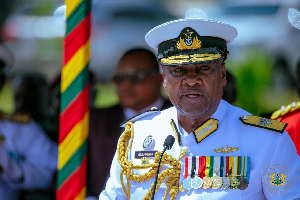Article by; Joe Effah-Nkyi (MILT)
Transportation, no doubt, is perceived as an inevitable ‘vehicle’ that has succeeded to change the face of the entire global hemisphere. The various conventional modes of transportation in the form of road, rail, air, i.e. aviation, sea, i.e. maritime and of course others like pipelines, Telecommunication have invariably enhanced mortals subsistence on earth. In modern times, the movement of high volumes of humanitarian and material logistics including highly sophisticated military hardware that traverses oceans and continents to preferred geographical destinations has become a possibility due to the transport factor modes.
Looking at the trend with which the world continues to develop at a higher velocity, it must therefore be emphasized that Transportation has radically contributed to extricate challenges confronting the world populace and basically impacted the entire global hemisphere in terms of flexibility, predictability and resourcefulness.
The above notwithstanding, the existing turbulent global events has indisputably presented a melancholic picture for the efficacious utilization of international transportation. Relatively over the years, it has been empirically established that most identified terrorist groups that existed all over the world, i.e. in Africa, the Middle East, parts of Asia and across Europe to the Americas has developed the penchant of targeting the various modes of international transportation, perhaps, to achieve their nefarious undertakings. The seemingly irritating question therefore is; why are these terrorist groups around the world continues to develop the propensity for targeting International Transportation and its infrastructure as conduit to achieve their horrendous intentions?
SOME EMPIRICAL EVIDENCE
There is no doubt that global terrorism in the wider perspective has become so sophisticated and formidable to exterminate, sending signals to world leaders of the daunting tasks ahead that requires concerted efforts to tackle the situation head on.
Based on hindsight, the September 11, 2001, that witnessed 19 militants linked with the Islamic extremist group al-Qaeda hijacked four airliners and carried out suicidal onslaughts against strategic targets in the United States continues to haunt every rational being. Commonly referred to as 9/11, the unpredicted assaults resulted in massive deaths and devastations the world has never perceived before. The senseless act consequently elicited huge investment into the protection of multi-modalism as well as deployment of sophisticated security devices and physical strategies including global risk management for the containment of future occurrences.
Regardless of the unfortunate 9/11 episode, there have equally been coordinated doses of severe terrorist attacks in various trajectories the world over, which invariably puts people’s lives at greater risk. It is therefore significant to note that the progressively but sporadic and calamitous bombings of public transit systems have placed transportation operators and administrators including world leaders on tenterhook as to prudent strategies to combat such astonishing adversities.
Grounded on accessible literature, the following chronological Terrorist hostilities in recent times provide stimulus to the above contentions. Back in 1988, terrorism reared its ugly head when a powerful missile shattered Pan Am Flight 103, over Lockerbie, Scotland. In this connection, all 259 living souls on the plane as well as 11 innocent people on the ground spot at the time were despondently taken.
According to study conducted by Jenkins and Graf on Mineta Institute de Transport shows that in 1997-2000, on a global scale, a number of over 195 terrorist attacks were targeted towards the urban public transportation system. Based on analytical research, they contended that, the structure of the target locations shows a percentage of 41% buses, 22% trains and underground trains, 10% train and underground trains stations, 8% bus terminals, 8% railways, 5% tourist buses, 1% bridges and tunnels, 5% other objectives all within the transport domain.
In 2003, incessant terrorist insurgencies resulted in the Stavropol train bombings in Russia that decimated 42 people. Following was a bomb that detonated on Moscow’s Metro in 2004 killing approximately 40 individuals. In recent years, terrorists linked with global jihad killed nine people and injured 60 on Manila's Metro. Terrorist activities heightened in Russia when in 2004 they succeeded in detonating bombs on board two planes, assassinating all 89 passengers and crew members.
In 2005, an unspecified number of bombs were planted on trains in the city of Madrid by unidentified attackers, killing 191 people instantly. This ungodly action was immediately preceded by terrorists operating within the central hub of London detonating four bombs, killing 52 persons. In 2006, Mumbai’s rail transport suffered massive casualty when seven bombs covertly embedded on them ignited. The adverse effect of this was total extermination of 207 commuters.
Apparently, in contemporary times, the shooting down of Malaysia Airlines passenger Flight 17 flying over Ukraine coming just 131 days after the disappearance of Flight 370 is a clear case of an industry in austere crisis. The general public perception about the missing airliner is that it is purported to have submerged in the deep seas of the Indian Ocean although not a minutest trace of its component has been discovered to this day. This cryptic development continue to be one of the confounded mysteries overwhelming international transportation and which continues to defy mans’ comprehension.
Indeed, on December 25, 2009, the entire global world would have come face to face with a very ghastly experience when Umar Farouk Abdulmutallab, the Nigerian student aboard Northwest Flight 253 was subdued by passengers as well as flight attendants in his clandestine attempt to detonate explosives sutured into his underwear.
Today, as we speak now, the radical Boko Haram continues to perpetrate mayhem on the Nigerian populace and even beyond its borders. The problem I have here is the concomitant utilization of vehicles, i.e. transport, fully stuffed with explosives and is driven into congregations, most especially Christian worshippers and public assemblies for destruction of significant lives and properties. Currently, the Boko Haram issue is not an isolated case. Of course there are many similar radical groupings operating within the African continent and beyond who basically perceive transportation as the core intermediary for perpetrating immoral deeds.
WHY TRANSPORTATION AS KEY TARGET?
Perhaps, the several characteristics features of transport transit systems such as the large number of travelers congregating at one common place in a particular point in time becomes so conducive that it presents an opportunity for the callous execution of these dastardly acts. Classical examples are that, ideally, a single airline could have aboard 200 and above travelers; complex transport interfaces could record not less than approximately 2 million human traffic per day traversing; sophisticated urban transit buses and Metros’ could accommodate 80 to 100 passengers on an expedition; and occasionally cruise as well as ocean going vessels may come under terrorist assault due to the enormous passenger rate at a particular point in time.
Conversely, the costly infrastructure of certain perceived locations of a large metropolis making it an economic and commercial significance compels extremist to use these facilities as potential target. Secondly, the large number of commuters using the transit network on daily basis, especially during rush periods of the day makes it really problematic for any safety measures and risk management strategies to be positively deployed to ameliorate any impending challenge emanating from the activities of radical organizations dotted around the globe. These and many other factors may irrefutably be the underlining factor for targeting transportation and its related infrastructure by extremist.
LESSENING THE IMPACT OF TARGETING INTERNATIONAL TRANSPORTATION
International Transportation, indisputably, produces cost-effective outcomes thereby enhancing logistical accessibility to every individual and the entire corporate world. There is therefore the need for polities to adhere to International rules of law and absolute respect for national sovereignties in the entire global hemisphere as enshrined in all the articles of the UN charter.
Well-endowed sovereignties could make interventions by supporting the less-endowed ones through provision of adequate health care facilities, enriched education including development oriented projects, but most specifically Jobs that are woefully lacking in most under-developed nations. Some of these measures could substantially uplift the masses from abject poverty and become a less motivational factor to target International transit systems by extremists.
CONTEMPORARY EVENTS
Conspicuously, the above unfolding heinous criminalities being perpetrated upon mankind recorded what could be said to be the ‘last straw to break the camel’s back’ when a team of suicide bombers and gunmen launched assaults on the Bataclan concert hall, the Stade de France national stadium and which ultimately affected various bars and restaurants around eastern Paris on the night of November 13, 2015 that resulted in maiming’s and annihilations.
The world cannot forget the gruesome attacks on three West African countries, namely Mali in November, Burkina Faso in January and Grand-Bassam, a remarkable resort town in Ivory Coast that succeeded in exterminating dozens of people, and consequently, that dastardly act by Islamic State through coordinated assaults at Brussels airport and a metro station on March 22 that left approximately 31 dead and almost 300 maimed, all through the evil machinations of so called fanatical groups. The above chronological events, therefore, points to the fact that the world is sitting on a time bomb unless there is concerted efforts, globally, to truncate the menace.
CONCLUSION
In the light of above, effective but rigorous Negotiations could be used as a tool to dismantle these global fanatical conglomeration. Efforts could be made by prominent world leaders to marshal these groupings to a negotiating table for intense dialogue, (although much difficulty is anticipated) where at the tail end there would be expectation of a win-win for all. The decision would significantly absolve International transportation and its diverse infrastructure from being used as key target to perpetrate obnoxious criminality and make it a wee-bit safer for prudent utilization of the greater populace. Transportation, in effect is the life blood of the people, it therefore requires optimum protection.
Joe Effah-Nkyi, (MILT)
CEO-Logistics Control Ltd.
P. O Box CE 12281, Tema/Ghana
+233 244 250922
Opinions of Saturday, 26 March 2016
Columnist: Effah-Nkyi, Joe














